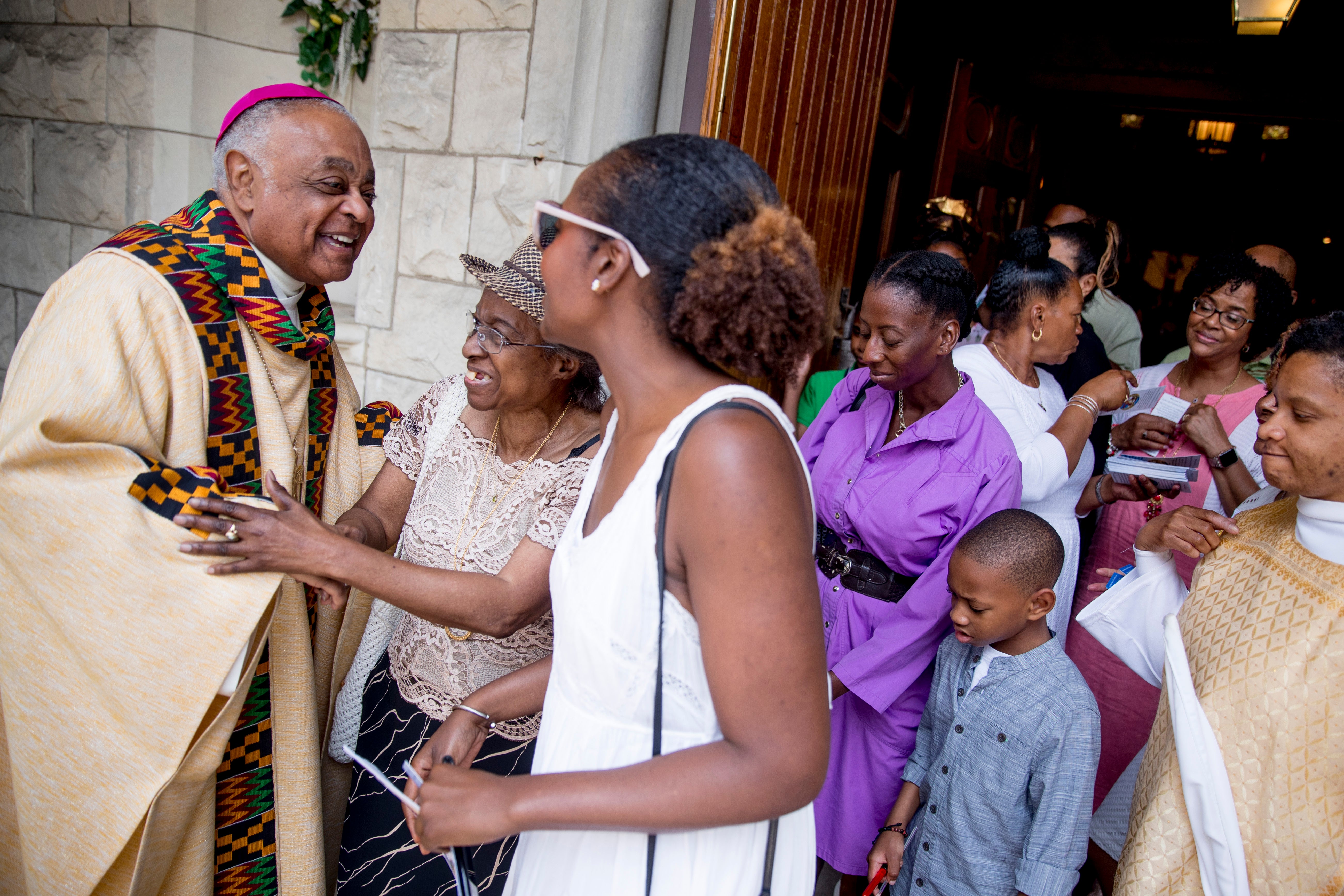Social issues a priority for cardinal-to-be Wilton Gregory
In four weeks, the Catholic archbishop of Washington, D

Your support helps us to tell the story
From reproductive rights to climate change to Big Tech, The Independent is on the ground when the story is developing. Whether it's investigating the financials of Elon Musk's pro-Trump PAC or producing our latest documentary, 'The A Word', which shines a light on the American women fighting for reproductive rights, we know how important it is to parse out the facts from the messaging.
At such a critical moment in US history, we need reporters on the ground. Your donation allows us to keep sending journalists to speak to both sides of the story.
The Independent is trusted by Americans across the entire political spectrum. And unlike many other quality news outlets, we choose not to lock Americans out of our reporting and analysis with paywalls. We believe quality journalism should be available to everyone, paid for by those who can afford it.
Your support makes all the difference.Washington, D.C. Archbishop Wilton Gregory, soon to become the Roman Catholic Church’s first Black cardinal from the United States hopes the U.S. hierarchy can broaden its concept of “pro-life” so that other pressing issues can be considered top priorities along with opposition to abortion.
Gregory, in an interview Friday with The Associated Press, also endorsed proposals to include the history of Black Catholics in the U.S. as part of the curriculum in Catholic schools. Earlier this year, amid nationwide demonstrations against racial injustice some Black Catholics said the curriculum should be more honest about the church’s past links to slavery and segregation, and more detailed in portraying how Black Catholics persevered.
All U.S. Catholics “should know the full panoply of the heritage of Black people in the church,” Gregory said. “It’s not a full history until all the components have a rightful place in the telling of the story.”
There also have been calls for the Catholic church to offer some sort of reparations because of its past involvement in slavery, but Gregory said any such initiatives would have to be made by individual institutions, not by the church as a whole. He cited the example of Catholic-affiliated Georgetown University which is committing funds to benefit the descendants of enslaved people sold to pay off the school’s debts.
Gregory’s ascension to cardinal was announced on Sunday by Pope Francis There is expected to be a ceremony at the Vatican on Nov. 28 formally elevating Gregory and 12 other clerics to the rank of cardinal.
His appointment comes amid a heated U.S. election campaign that has entangled many Catholic leaders. Some are signaling support for President Donald Trump because of the Republican Party’s stance against abortion. Others, citing comments from Pope Francis, argue that other social issues – including racial injustice, poverty, immigration and climate change – also deserve to be emphasized.
A reference point for this debate is language in the official voting guide produced by the U.S. bishops conference, which says “the threat of abortion remains our preeminent priority.”
Gregory was emphatic that “respect for life in the womb” should remain a top priority but said the references to it being the preeminent issue “could benefit from rephrasing.”
The current phasing “implies that other dimensions of human life can be dispensed with – and they can’t,” he said.
Recently, the Rev. James Altman, a priest from Wisconsin, declared in a YouTube video: “You cannot be Catholic and be a Democrat” and warned that Catholics risked “the fires of hell” if they backed a party favoring abortion rights.
Gregory depicted such remarks as “egregious and unhelpful,” and said Catholic voters should base their voting decisions on “the full panoply of the church’s social teaching.”
Another volatile issue now confronting Catholic clergy involves the status of LGBT people in the church. Last week, a documentary film premiered in Rome with a segment in which Pope Francis endorsed the concept of civil unions for same-sex couples.
Gregory has drawn notice for his relatively inclusive approach for LGBT Catholics, and said it was essential that they be treated with respect. In the interview, he opted not to urge Catholic schools and other Catholic employers to discontinue the occasional firings of employees who have a same-sex partner or spouse, saying “It’s not a one-size-fits-all situation.”
The 72-year-old Gregory was ordained in his native Chicago in 1973 and took over leadership of the Washington archdiocese last year after serving as archbishop of Atlanta since 2005.
The previous two archbishops in Washington — Donald Wuerl and Theodore McCarrick — were implicated in the church’s long-running clergy sex-abuse scandal.
Francis in February 2019 defrocked McCarrick after a Vatican-backed investigation concluded he sexually abused minors and adults over his long career. It was the first time a cardinal had been dismissed from the priesthood for abuse.
Pope Francis also has authorized a study of the Vatican archives to determine how McCarrick had risen through the ranks despite allegations he slept with seminarians and young priests. Two years later, the Vatican still hasn’t released the report or given any timetable for when it might.
Gregory said he had no advance knowledge of the timetable.
“When it is issued, I hope it is complete, fair and transparent,” he said.
___
Associated Press religion coverage receives support from the Lilly Endowment through the Religion News Foundation. The AP is solely responsible for this content.
___